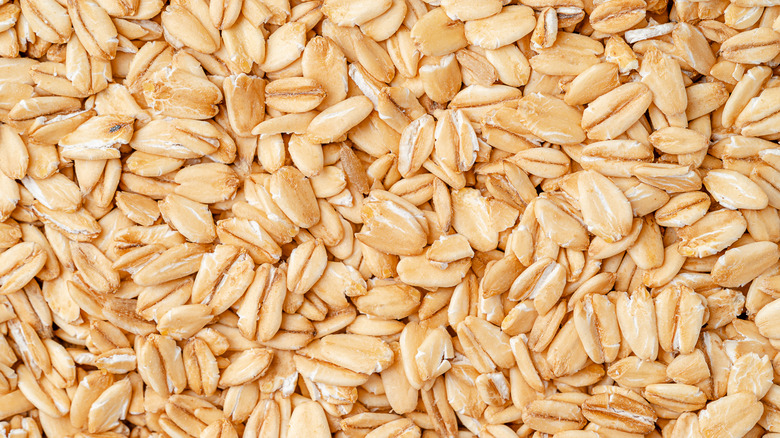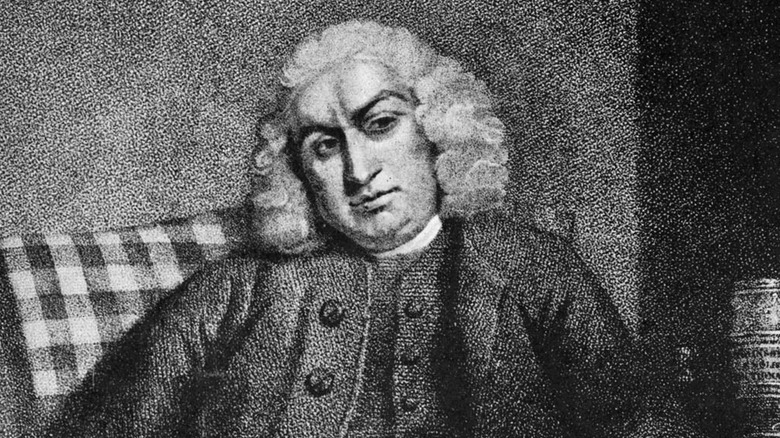How Oats Once Sparked A Humorous Debate In The UK
As shared by Healthline, oats are now touted for their various nutritional benefits, such as high vitamin content, antioxidants, soluble fiber, and even cholesterol-lowering power. However, this popular breakfast staple was not always given its due respect–in fact, thousands of years ago, during the Roman Empire, Pliny the Elder wrote in Natural History that oats were a diseased form of wheat. Although this ancient text has stood the test of time, Pliny's writings on the oat are now considered factually inaccurate since the oat isn't malformed wheat, but more of a distant relative, according to Foods Guy.
As individual people differ in tastes, so do countries and regions. Years later, in a completely different part of the world, Pliny the Elder's strong distaste for oats emerged once more — this time in the United Kingdom. Doctor Samuel Johnson, the author of the Dictionary of English Language, came up with a troubling definition for the grain that amused some and angered others.
Samuel Johnson's definition of oats
When he sat down to write it in the early 18th century, the author of the famed English Dictionary may have let some of his own biases seep into the text. Doctor Samuel Johnson's definition of oats is as follows: "A grain which in England is generally given to horses, but in Scotland supports the people." This peculiar, offensive definition of the grain was a polarizing statement that prompted many Scotsman to interrogate Johnson about the true meaning behind the sentence, according to Allen Walker Reed's The History of Dr. Johnson's Definition of "Oats."
It's hard to say that Johnson meant to offend the Scots in his oats entry since he had Scottish assistants help him define Scottish words, per Reed. However, Reed shares that Johnson admitted that his definition purely reflects his personal dislike of oats. James Boswell, the Scottish biographer who wrote the Life of Samuel Johnson, responds to Johnson with a witty remark: "Aye, and that's why England has such fine horses, and Scotland such fine people."
Although Johnson's definition seems targeted, the association people make between Scotland and oatmeal can be traced back to the Medieval period, when the Scottish started depending on oats due to the lack of sunlight and high humidity (via National Geographic). Even today, we refer to whole oat groats as Scottish oats, which is a popular type of oatmeal. See our ranking for the best brands of oatmeal to celebrate this nutritious, historical grain.

